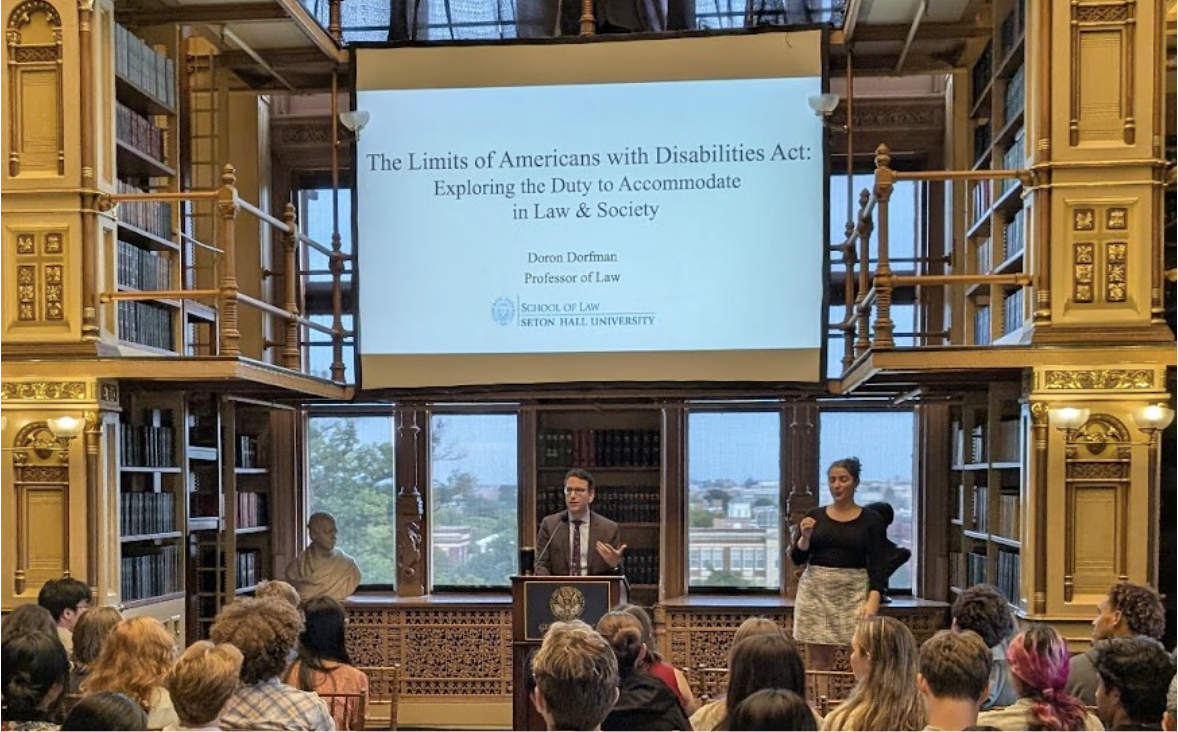Georgetown University announced the three inaugural winners of the Magis Prize, which awards $100,000 in research funding and two semesters of leave to associate professors who demonstrate exceptional research potential, Sept. 5. Awardee Timothy Newfield, an associate professor in the biology and history departments, will investigate the origins of smallpox by tracing its historical and epidemiological roots.
Smallpox, a deadly disease caused by the variola virus, killed millions of people globally throughout human history. Smallpox remained a severe public health threat until the World Health Organization (WHO) led a worldwide vaccination and contact tracing campaign that eradicated smallpox in human populations in 1980.
However, according to Newfield, significant gaps remain in our understanding of smallpox, especially its origins. Newfield said the research he will do through the Magis Prize will help inform our current knowledge of emerging diseases.
“Smallpox is often assigned much historical agency but it is rarely studied in its own right,” Newfield wrote to The Hoya. “So there is a lot of work to do. And thanks to discoveries in paleogenetics, it now seems that the pathogen that causes smallpox emerged in relatively recent time — not millennia ago but centuries, which makes it possible to study its early history to better our understanding of disease emergence now.”
Rachel Singer (COL ’21, GRD’27), a doctoral candidate in the history department studying environmental history under Newfield’s mentorship, said the natural sciences are valuable tools for studying past disease outbreaks.
“Data produced by the sciences can speak to facets of the past that more traditional, textual sources do not and can serve as a really important independent check on those sources’ testimony even when they do overlap,” Singer told The Hoya.
Newfield will use modern DNA analysis techniques to study the viral DNA contained in the bodies of people who died of smallpox, allowing him to understand the virus’ evolution and impact on human populations from epidemiological and historical lenses.
“Part of the project will entail identifying physical remains of historical victims of the disease from which we hope to recover Variola DNA,” Newfield wrote. “From DNA extraction to library preparation to genome enrichment, this is a multistep, highly specialized process that can — if successful — radically improve our grasp of the history of infectious diseases, smallpox included.”
A key component of the Magis Prize is the involvement of undergraduate students in the awardees’ research. Newfield said that he plans to invite students interested in biology and history to work with him on the project.
“That is absolutely the plan — students bringing their own interests and passions to the project, working on facets that are either more history or more biology,” Newfield wrote. “Some students at Georgetown, of course, do both.”
Singer, who studied history at Georgetown, performed independent research into the Black Death in North Africa under Newfield’s mentorship as an undergraduate. Singer said that her undergraduate research with Newfield was crucial to her formation as a scholar.
“I wouldn’t be where I am today without my experience of undergraduate research at Georgetown,” Singer said. “I came to college never having written a paper longer than five pages and without a clear idea of what research was, much less how to do it… But with lots of help from excellent faculty mentors, I managed to figure it out.”
Chandan Vaidya, Vice Provost for Faculty, said that students can reach out directly to winners of the Magis Prize to express their interest in contributing to the research.
“Interested students could express their interest in being involved in research, directly to the three winners of the Prize,” Vaidya told The Hoya.
According to Vaidya, the research produced by Magis Prize awardees may influence the direction of the future Georgetown curriculum.
“The winners will meet with Georgetown’s Center for New Designs in Learning and Scholarship instructional design teams to consider how to incorporate the innovations created over the term of the prize into the Georgetown curriculum,” Vaidya said.
Newfield, who is also the director of undergraduate research and scholarship for the Medical Humanities Initiative, said that interdisciplinary approaches are essential for future disease research.
“No single discipline has all the tools to study disease now let alone disease in the past,” Newfield wrote. “We very much need each other — to not only make sense of things but then also to make the most of our discoveries. Working on the fringes of multiple disciplines, working collaboratively, constantly learning — all of this historical epidemiology demands. It’s just a lot of fun.”




